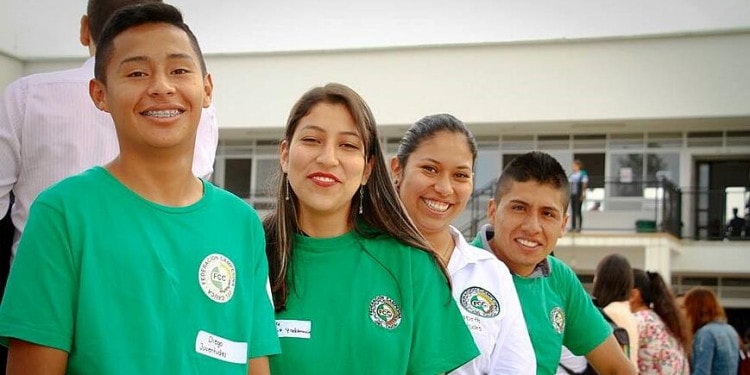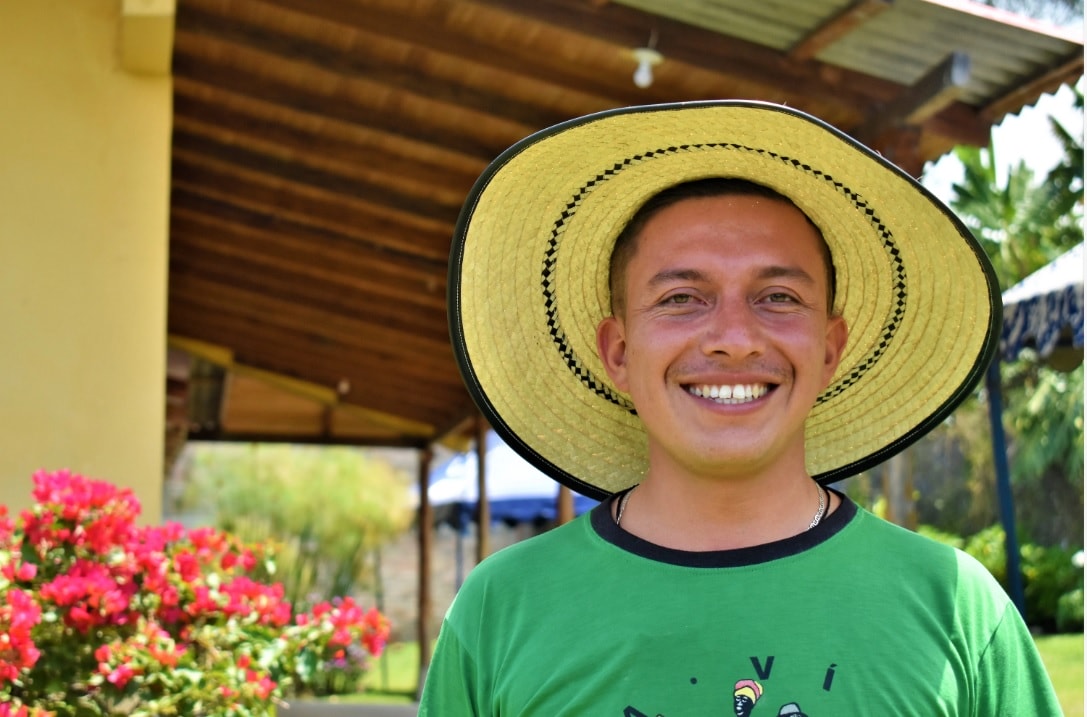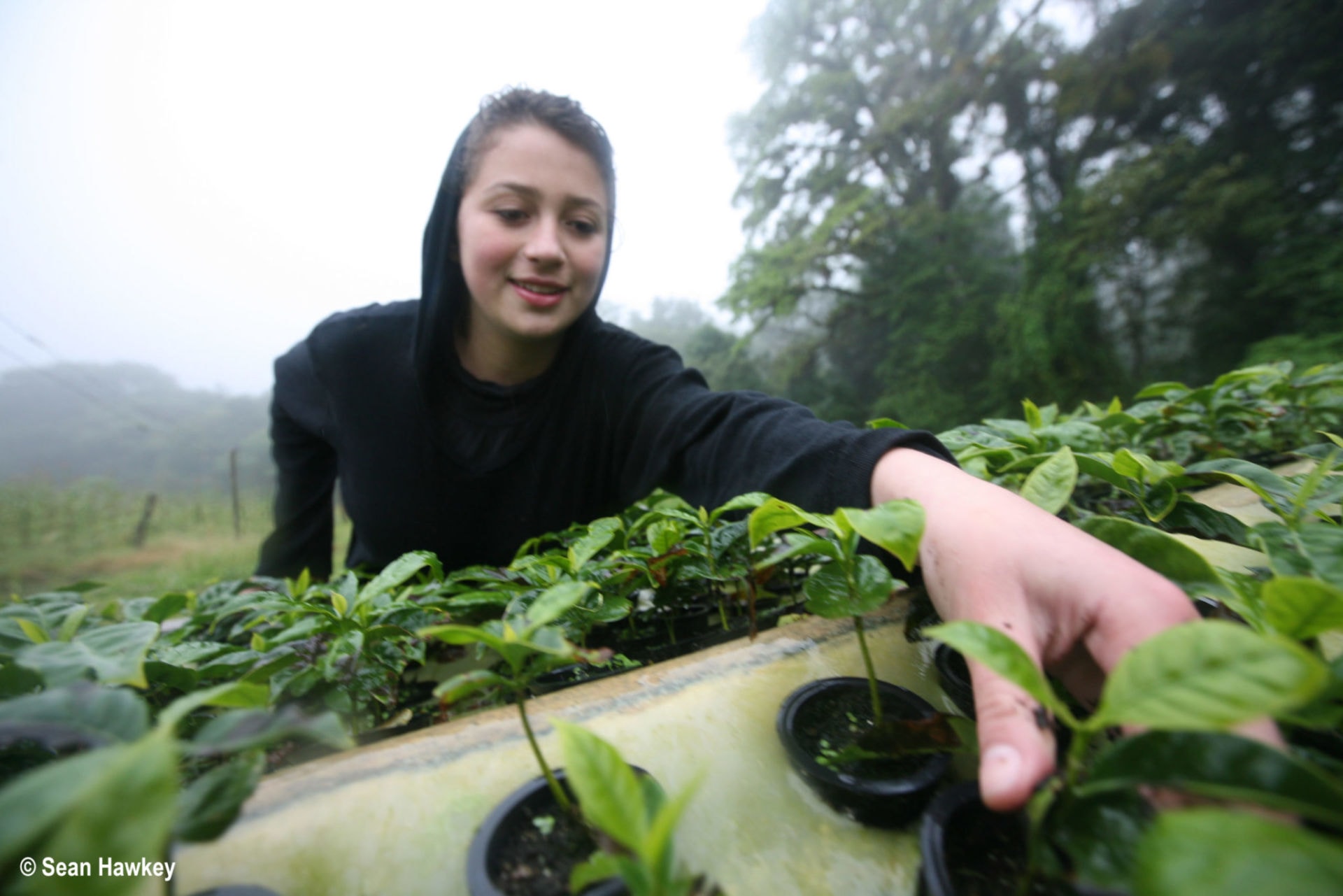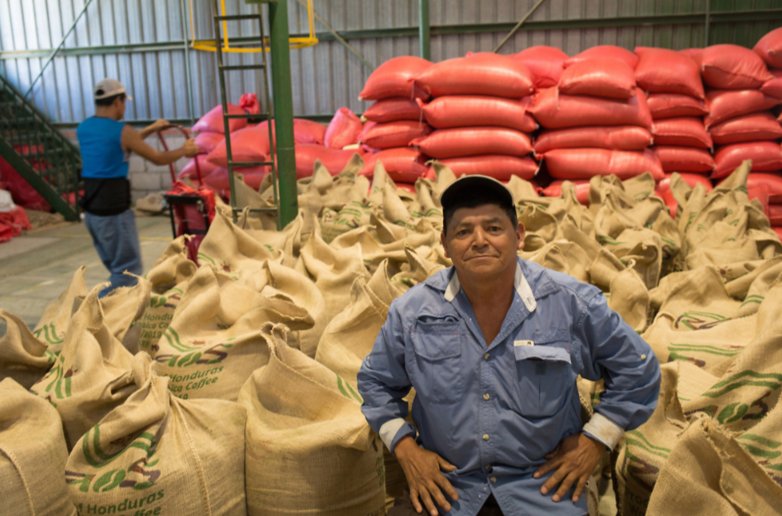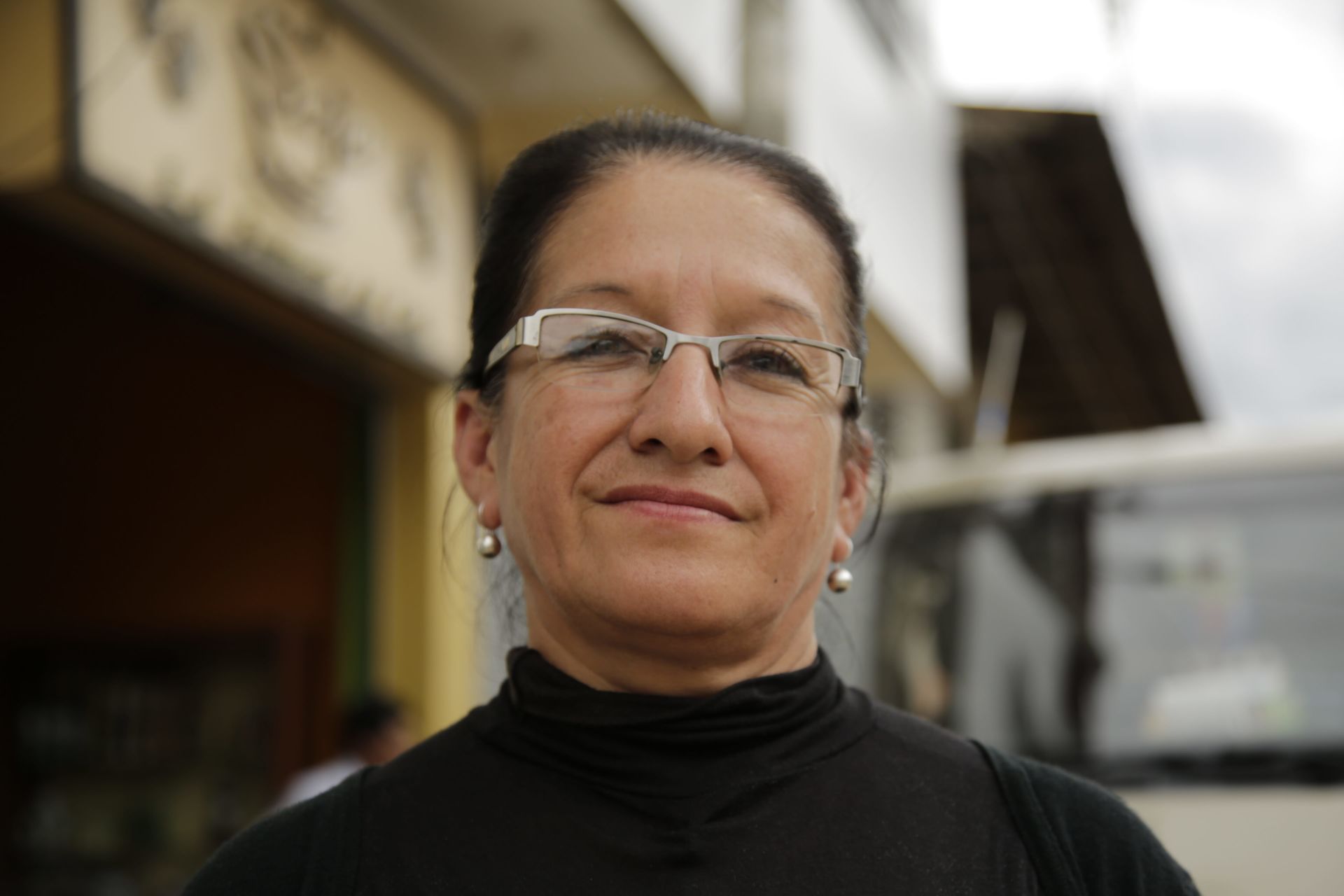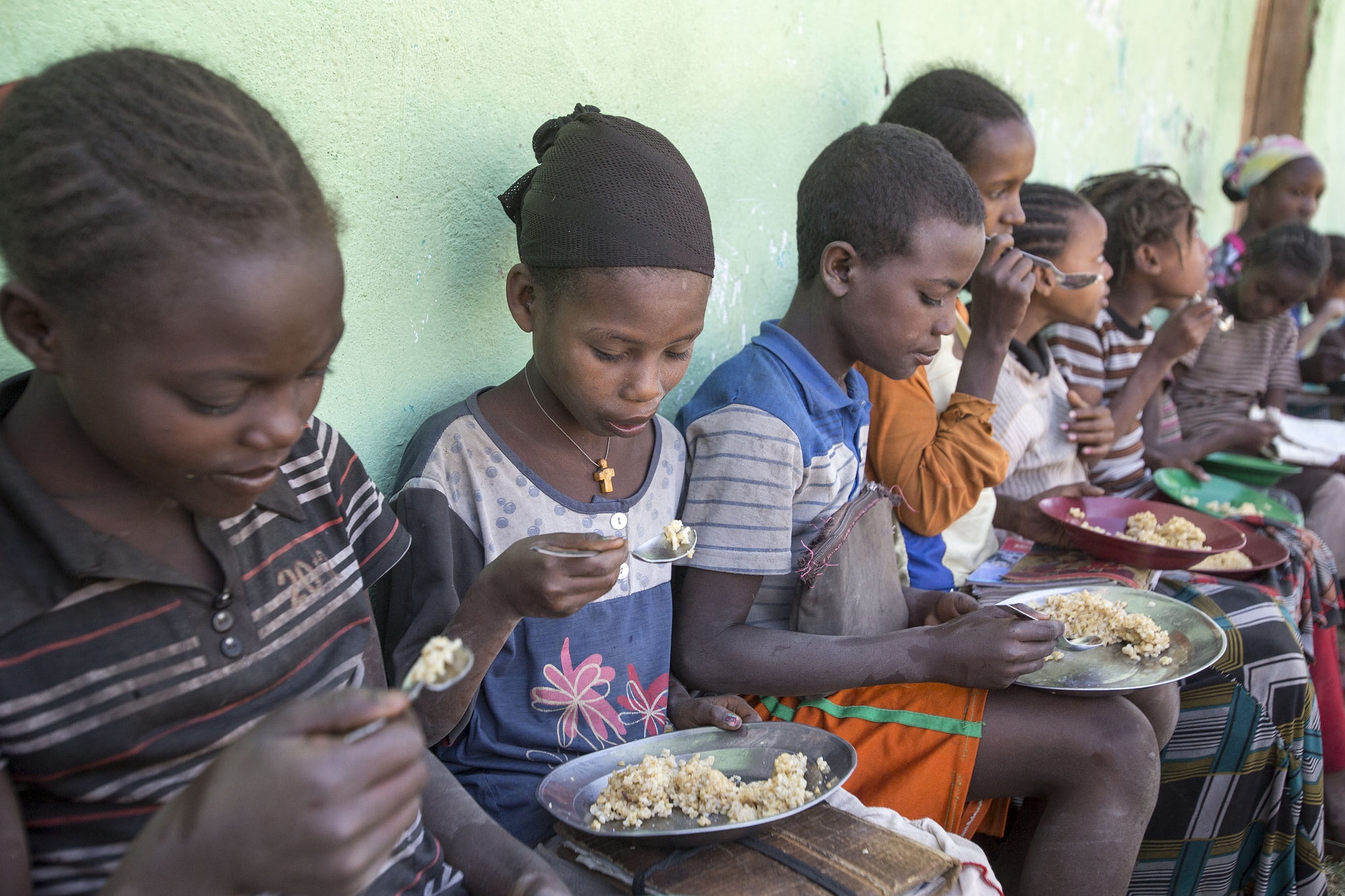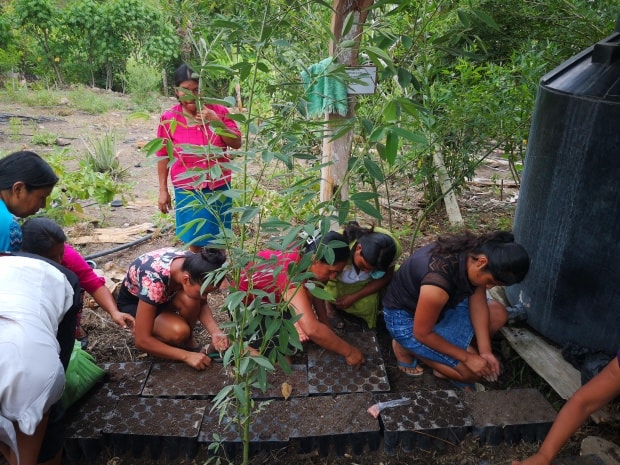Many recipients of resilience funds employed them into projects focused on young people because the future of the coffee sector depends on making agriculture a viable career for the next generation.
 Article in collaboration with: Root Capital invests in the growth of agricultural enterprises so they can transform rural communities. These businesses purchase crops such as coffee, cocoa,or grains from smallholder farmers. With growth, they become engines of impact that can raise incomes, create jobs, empower women and young people, sustain peace, and preserve vulnerable ecosystems.
Article in collaboration with: Root Capital invests in the growth of agricultural enterprises so they can transform rural communities. These businesses purchase crops such as coffee, cocoa,or grains from smallholder farmers. With growth, they become engines of impact that can raise incomes, create jobs, empower women and young people, sustain peace, and preserve vulnerable ecosystems.
Duban Gómez Alvarado grew up expecting to one day enter the family business: coffee farming. The Alvarados have worked the flourishing fields of western Colombia for generations—but, in recent years, climate change has imperiled their crop yields. Simultaneously, the global coffee price has plummeted below the cost of production, leaving many farmers without a livable income. “For many years, we have been coffee farmers in my family,” Duban says, “but I am not convinced at the prospect of continuing with my family’s work.”
Related topics: Investing in the future – How Youth Can Reshape Our Unequal World– Meeting in the Middle to Build Peace
At Root Capital we believe that the best solutions to these challenges come from the people who confront them every day. That’s why we partnered with USAID Feed the Future to pioneer a Resilience Fund that supports coffee enterprises to address these challenges through innovation. The Resilience Fund is part of the Partnership for Sustainable Coffee, a three-year project supported by USAID and Keurig Dr Pepper.
Inspired by our successful Gender Equity Grants program, we’re providing select clients with one-time grants to support innovative approaches that combat climate change, promote gender inclusion, and improve livelihoods. Over the last two years, we awarded resilience grants to 10 businesses across Peru and Colombia and facilitated a participatory process to design their projects.
Unsurprisingly, many of the recipients directed their funds to projects focused on young people like Duban. These businesses understand that the future of the coffee sector depends on making agriculture a viable career for the next generation. Here are just a few of their stories.
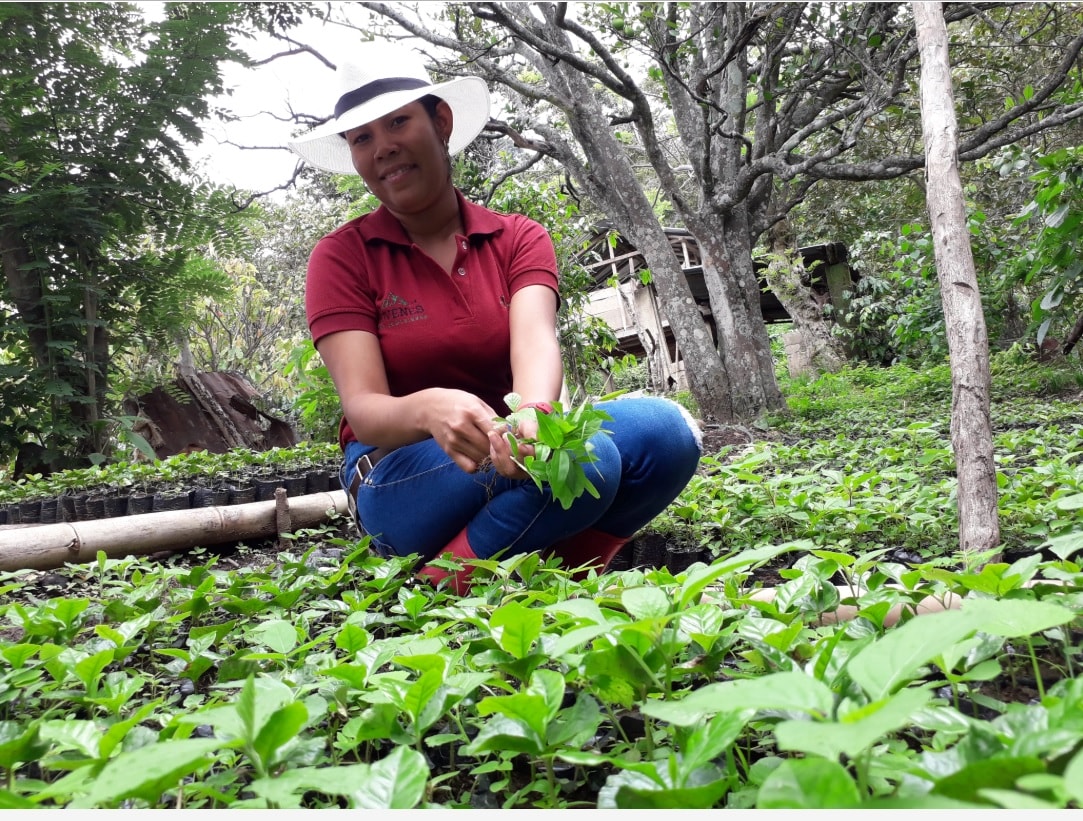
Amplifying the voices of young people
For well over two decades, Red Ecolsierra has supported production of premium, organic coffee by more than 350 families in the rugged mountain range of Sierra Nevada de Santa Marta, Colombia. But the cooperative has witnessed a change in recent years. After seeing their families struggle with low yields from la roya in 2014 and the current record-low prices for coffee, young people began to disengage from the cooperative. The project coordinator for Red Ecolsierra, Javier Pacheco, recalls that “the association members said to us, ‘it’s important to have generational input,’ but in reality, we didn’t know what the young people were doing.”
With the future of the organization in danger, Red Ecolsierra used its resilience grant to create a youth committee that sits underneath the main board of the association. In addition to weighing in on the decisions of the cooperative, members of the committee also take a series of classes on business administration and agronomy paid for by the resilience grant. In this way the program amplifies the voices of young people in the association while also improving their decision-making abilities on the farm and in the committee room.
“By working with young people, we realized where we could strengthen ourselves,” Javier remarks. He credits much of the cooperative’s progress over the last two years to youth involvement: “Without this, I believe that we would be much later in achieving what we have accomplished up to this point.”
Equipping youth to improve farming practices
“The young people that are in the region want to change their lifestyle,” notes Alexandra Puliche, a member of the Federación Campesina de Cauca (FCC) in Colombia. Faced with climate-induced diseases and chronically low prices, Alexandra says, “they are not interested in farming.” So the federation decided to utilize its resilience grant to improve incomes for its producers and show the community’s youth they can have a future in Cauca. The key? Organic farming.
With the help of the Resilience Fund, FCC facilitated workshops for the young adult children of farmers and trained them as promotores: educators who would eventually provide their own workshops to help members of the federation switch to organic farming. In addition, they equipped these promotores with mobile phone technology to aid the agronomic extension team in tracking the changes in organic production brought about by the program.
Farmers across the federation are converting from conventional to organic farming. The process is a lengthy one, but as farmers are able to sell their coffee with an organic certification, their incomes will rise. Some have even started to ask how they can enroll their own children in the program. To the cooperative’s leadership, this was a promising sign. Not only does it ensure the program has a future beyond this one-time grant, it also signals a shift in the community mindset toward social projects. Before, cooperative members only wanted to participate in short-term projects focused on increased crop productivity; but now FCC has the buy-in necessary to invest in long-term resiliency projects, even if they carry up-front costs.

Creating jobs for young people
For years, members of the José Olaya cooperative sold their coffee based on weight, without accounting for differences in quality. Because of this, the cooperative was unable to reach the specialty coffee markets that would fetch a higher price for its members. While the cooperative wanted to make a change, their town of Quillabamba, Peru had no quality control specialists to hire.
At the same time, low prices and the lack of non-farming jobs forced many youth to migrate to bigger cities in search of economic opportunity. So José Olaya used their resilience grant to create their own quality control department, staffed entirely by youth from the community.
The cooperative hired a quality control specialist from another part of the country to run workshops on physical and sensory analysis for five youth from coffee-producing families. One of those participants was Nayra Caroly Cahuaniri Miranda. “The first time I went to the class,” she recalls, “I didn’t understand anything, I felt lost.” But after a few classes she began to detect different flavor notes. “From there,” she says, “I have continued learning and now I want to keep training my coffee skills.”
Following these workshops, the cooperative hired three of the trainees to form the quality control team of the organization—including Nayra. The grant also paid for the young trainees to travel to members’ farms and educate them on post-harvest processes to improve coffee quality.
José Olaya has seen a marked decrease in the number of defective beans coming to the cooperative. This improvement in coffee quality means that the cooperative can sell price-differentiated coffees to buyers, boosting livelihoods for its farmer members and showing the youth of the community a model for a sustainable career in agriculture.
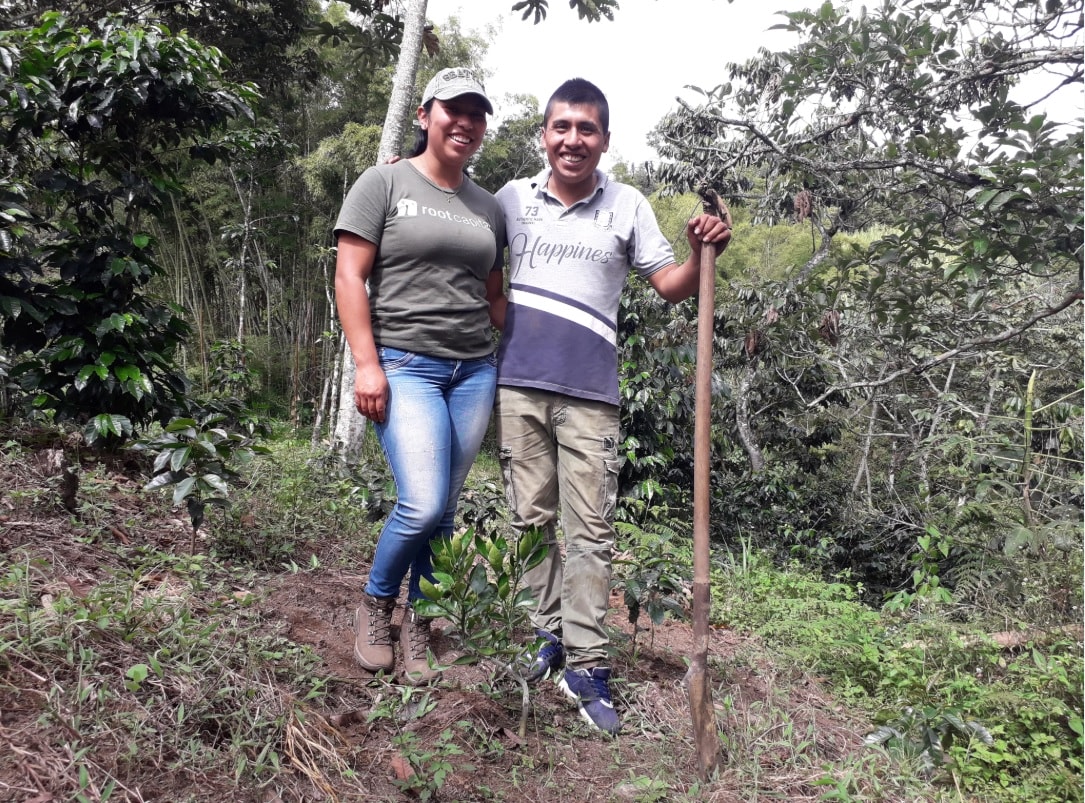
Different methods, one goal: Create more resilient coffee businesses
As these resilience grants end, we are proud of the work they have accomplished. Projects like those profiled here will continue to provide returns for these cooperatives for years to come.
As for Duban, he still works on his family’s land, and now has no plans to leave. Under the resilience grant, FCC is helping to pay for the university program where Duban is training as an agronomic engineer. “To make a living on the farm is a challenge, but it is satisfying,” he says. On the weekends and holidays, he puts the skills he learned in the classroom into practice on his family’s farm—and he’s beginning to see results.
With just a little support, young people like Duban can imagine a future in coffee farming. By involving the voices of the community’s youth, leveraging their unique skills, and providing them with alternative employment opportunities, we can build a resilient coffee sector one enterprise at a time.
About the author: Rob Hefferon is a Communications Associate at Root Capital
EDITOR’S NOTE: The opinions expressed here by Impakter.com columnists are their own, not those of Impakter.com. Photo Credit: C.A.C. Jose Olaya. Federacion Campesina del Cauca, and Root Capital


